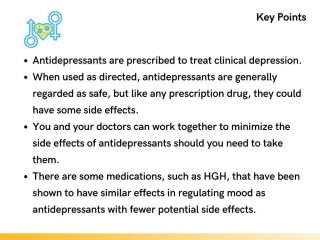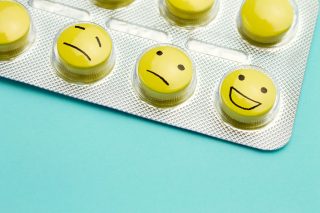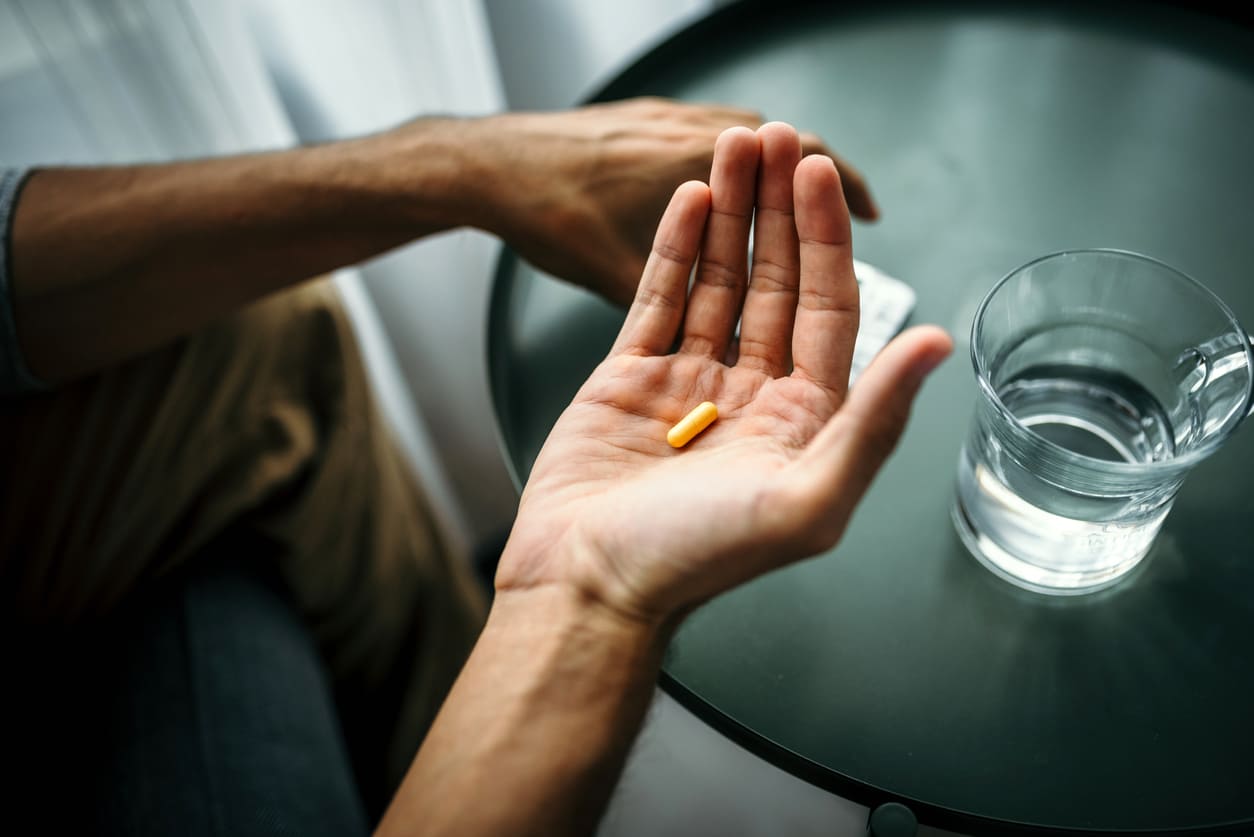Why Are Antidepressants Used?

Antidepressants are used to treat various forms of clinical depression. They are powerful prescription drugs, and they should never be used without a doctor’s prescription and proper medical supervision.
Some types of antidepressants may also be used to treat other mood-related conditions or emotional disorders such as obsessive-compulsive disorder (OCD), generalized anxiety disorder, or post-traumatic stress disorder. There has also been research that indicates that antidepressants can be used to treat people with long-term or chronic pain.
When used as directed, antidepressants are generally regarded as safe, but like any prescription drug, they have potential side effects, some of which could be quite severe.
In Which Cases Can They Be Harmful
Antidepressants are remarkably effective drugs, and they can be quite helpful for people with varying degrees of depression or anxiety. However, like all drugs, they do have some warnings, contraindications, and potential side effects.
Understand that antidepressants are a very broad category of medication. There are many types of antidepressants with differing mechanisms of action and variants in their side effects.
In the following section, we will discuss the most common side effects of the group as a whole. Even looking at the side effects of antidepressants in such broad terms, understand that many of the side effects listed below are quite common, and others can be exceedingly rare -particularly the more harmful ones. Just because these side effects have been identified as possible with an antibiotic you may be taking, that does not mean you will experience them. Also, bear in mind that most patients who experience side effects on antidepressants tend to stop getting them once they have been on their medication for a month or so and their body adjusts to the drug.
The Most Common Side Effects of Antidepressants
In this section, our doctors have provided information explaining the most common side effects of antidepressants and how each of the side effects listed could impact your and your personal health. Wherever possible, we have included strategies on how to deal with the given side effects.
Gastrointestinal Side Effects
Gastrointestinal issues such as nausea and constipation are quite common among most classes of antidepressants. However, like many of the side effects of antidepressants, nausea and constipation tend to fade after a few weeks on the drugs. If they should persist, for nausea, try not to take your medication on an empty stomach, and drink plenty of fluids, such as cool water. Try taking antacids or bismuth subsalicylate (Pepto-Bismol). For constipation, eat high-fiber foods, such as fresh fruits and vegetables, bran, and whole grains. Consider taking a daily fiber supplement, or ask your doctor about stool softeners.
An extremely rare side effect of some selective serotonin reuptake inhibitors (SSRI) antidepressants is gastrointestinal bleeding, which includes your stomach and intestines. If you notice bleeding from your rectum or blood in your poop while on an SSRI, contact your doctor right away.
Sleep Disturbances
Another frequently reported side effect of most types of antidepressants is insomnia or disturbed sleep, which can cause daytime tiredness and other negative impacts on health. You can help sleep better while on these drugs by getting regular exercise, taking your antidepressants at the start of the day instead of at night, and avoiding drinks with caffeine close to bedtime.
Sexual Side Effects

Both men and women have reported sexual side effects while taking antidepressants. These range from loss of libido, delayed orgasm, inability to achieve orgasm, and erectile dysfunction in males. These symptoms are most likely to occur with SSRIs. As you might imagine, this is one of the most uncomfortable side effects of antidepressants, especially for men, but there are ways to deal with it.
Consider a medication that requires only a once-a-day dose, and schedule sexual activity before taking that dose. Speak to your doctor about switching to a medication where sexual side effects are less common or about oral ED drugs like Viagra that you may be able to take with the antidepressant you are on.
Weight Gain or Loss
Changes in weight can occur while taking antidepressants for several reasons. Some can interfere with appetite and cause weight loss, but weight gain is far more common. To avoid weight gain, try to maintain physical activity even if your medication is making you feel tired or sluggish, eat right, avoid sugar and junk foods, and speak to your doctor about the best diet and exercise regimen to counteract any weight effects of the drug you may be taking.
Nervous System and Psychological Side Effects
While they are designed to positively impact mood by alleviating feelings of depression, many antidepressants can also cause other “nervous” or psychological effects such as agitation, restlessness, and anxiety. You can often feel “revved up” with too much energy than you know what to do with. You can relieve those feelings by working out regularly; perhaps try something that requires a lot of physical activity, like running, spin classes, or kickboxing. Also, try some relaxation techniques such as deep breathing, yoga, or tai chi. If none of these help, speak to your doctor about adding a mild sedative to your antidepressant.
Serious and Rare Side Effects
While rare, there can be some serious and even life-threatening side effects of antidepressants; in the next section will discuss some of these.
Serotonin Syndrome

Serotonin syndrome is rare but one of the most serious potential side effects of antidepressants. It can lead to severe health complications like seizures, elevated blood pressure, and heart palpitations and can even be fatal. It usually occurs with SSRIs when your body reacts to the drug by overproducing serotonin in such excessive amounts that it can be harmful.
Allergic Reactions
As with any drug, certain individuals can have allergic reactions to antidepressants. Allergic reactions can occur with antidepressants, either because you are allergic to the medication itself or one of the other inactive ingredients that’s in the pill or capsule. Before taking an antidepressant or any new drug for the first time, be sure to discuss any history of allergic reactions to any medication or know ingredients in common medication with your prescriber.
Suicidal Thoughts
Again, while they are supposed to improve your outlook on life, antidepressants have been known to increase suicidal thoughts in some patients. Such suicidal idealogy usually occurs with SSRIs, but it has been reported with other types of antidepressants as well. If you find yourself with such thoughts, seek help immediately by calling The Suicide Prevention Hotline. Simply dial 988 anytime, 24/7, from any cell phone or landline.
How to Minimize Side Effects
In addition to the specific mitigation strategies discussed above for the various individual side effects, there are some steps you can take in general to minimize any side effects you might experience with antidepressants.
Communicate with Your Doctor
Good, open, and honest communication with your doctor is your best line of defense against side effects. Tell your doctor about allergies or side effects you have been troubled with in the past on any medications, and be sure to bring any side effects to your prescriber’s attention immediately.
Start with Low Doses
Often, your doctor will purposely start you out on the lowest effective dose of any antidepressant to not only minimize the potential of initial side effects, but to get your body used to the presence of the medication. This will help prevent side effects as he or she may need to raise the dose further down the line.
Maintain a Healthy Lifestyle

If you scroll up and take a look back at the list of specific side effects, you will notice that many of them can be reduced or eliminated by eating right and getting enough exercise. Maintaining a healthy lifestyle while taking antidepressants cannot only be amazingly helpful in reducing your chances of side effects, but it can also improve your outcome overall. To get the most out of treating your depression or anxiety disorder while taking antidepressants:
- Eat a healthy and consistent diet, avoid overeating and junk foods.
- Get regular exercise.
- Stay hydrated.
- Get a good night’s sleep.
- Practice stress reduction.
- If you don’t smoke, don’t start; if you do smoke, quit.
- Minimize your consumption of alcohol.
- Do not use recreational drugs.
- Engage with people socially.
- Minimize screen time.
- Explore mindfulness and other ways of positive thinking.
- Cultivate activities and habits that you enjoy doing.
Medication Alternatives
Because of the many side effects associated with taking antidepressants, many patients are interested in alternative medications to treat depression and anxiety. The link between hormones and emotional states is well-known and well-documented. Hormone replacement therapy, in many instances, can be a viable alternative to antidepressants. This is especially true in cases of depression that can be directly linked to hormonal imbalances such as menopause, low testosterone, or age-related growth hormone decline.
HGH and Mental and Emotional Health
Human growth hormone is one of those hormones that has been definitely linked to moods and emotional states. This is because HGH is a known and necessary precursor to the production and release of the brain’s “feel good” chemicals, serotonin and dopamine. HGH injections have been shown to increase the levels of these neurotransmitters and have a positive effect on mood, decreasing feelings of depression and anxiety.
There have been several research studies that provide evidence of a link between HGH and depression. A 2021 study published in Frontiers – Neuroendocrine Science found that patients with a decreased HGH level had significant increases in depressive thoughts as scored by standard tests used to evaluate clinical depression.
A paper entitled Human Growth Hormone In The Treatment Of Biological Depression, concluded that “HGH should be considered as a novel approach to treat depression in certain patients.”
Conclusion
Antidepressants, like any medication, have their share of potential side effects, and like any treatment, you and our doctor have to decide if the benefits of taking the drugs outweigh the risks.
In most cases, they do. When they are needed, most of our patients do well on antidepressants. Serious side effects are rare, and most of the common side effects mentioned on these pages either fade in a few weeks or can be easily dealt with.

